How Rushnara Ali, Keir Starmer and the Labour Party lost voters’ confidence in Bethnal Green and Stepney. From the second-largest majority of 37,500 to a marginal of just 1700. It’s a case of how to alienate voters and lose a supermajority.
From Cable Street to Brick Lane, to now the Battle of Bethnal Green & Stepney
The East End has long been considered a fringe, marginal area of London, often associated with those at the bottom of the socio-economic ladder. Despite this, it has played a pivotal role in the fight for human dignity. Events such as the Peasants’ Revolt, the Battle of Cable Street, and the Battle of Brick Lane highlight its significance. These episodes share a common theme: ordinary people uniting to transform the rhetoric of equality—where all are born equal, each endowed with the inalienable rights of life, liberty, and the pursuit of happiness—into a living reality.
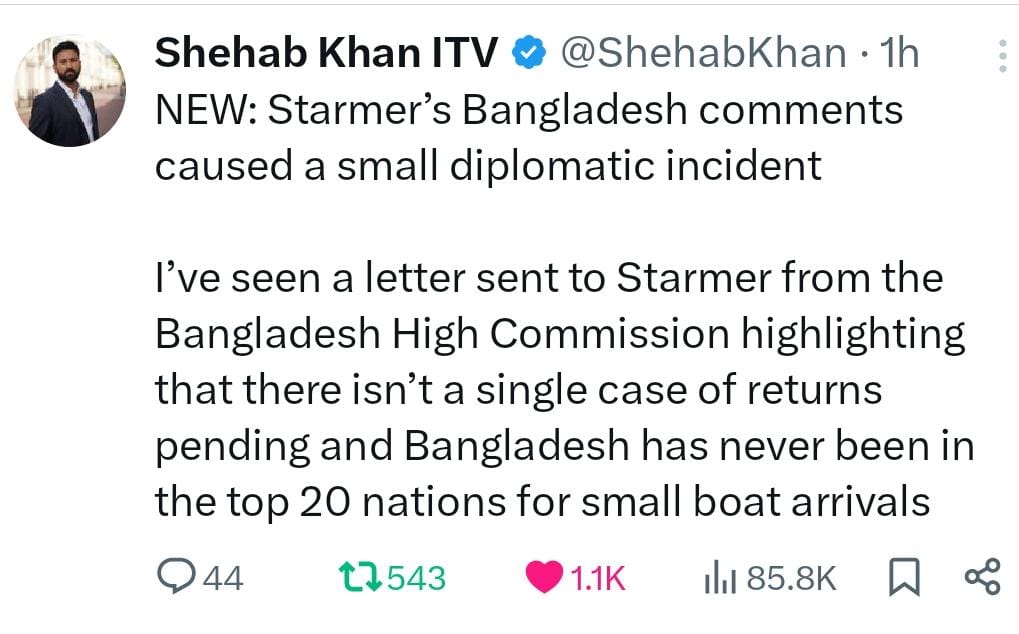
On the 4th of July, ordinary residents of Bethnal Green and Stepney rose up to confront the ‘hired goons’ of the Labour Party, to make reality this rhetoric of equality. For the Palestinians abroad and Bangladeshi migrants at home. These goons were allegedly not supporting Rushanara Ali out of genuine conviction but, according to inside sources, in exchange for promised council nominations in the 2026 local elections. For instance, one individual was promised a nomination in the Whitechapel ward, while another was promised a nomination in Stepney Green.
The Tower Hamlets Labour Party has a well-documented history of enforcing a hierarchy of racism. On that particular day, this hierarchy was aggressively upheld through intimidation and assaults on voters and canvassers. This racism manifests both abroad and at home: through complicity in the genocide of the Palestinian people and the unjust targeting of Bangladeshi migrants. Within the party itself, this hierarchy is perpetuated as Bangladeshi canvassers are made to deliver racist letters to unsuspecting residents. No self-declared white liberal within the party would personally deliver such incendiary messages, but they are willing to compose and authorise them.
Why did Rushanara Ali fail to address the concerns of her constituents, such as the genocidal assault on Palestinians and the unjust targeting of Bangladeshi migrants? Why resort to such ‘street-level thuggery’? The answer lies in the corrupt and rotten borough modus operandi, divvying up of councillor nominations, of the local Labour Party, which she is content to oversee.
Rushnara Ali and her ‘hired goons’, confronted by a local mother and her children in front of the Brady Arts Centre, 4th July 2024
People Power vs Dirty Tower Hamlets Labour Politics

According to insiders within the party, when Israel’s assault on Gaza began in October, Labour officials quickly recognized that Rushanara Ali was in a precarious position. With the aim of securing control over the nominations for Labour councillor candidates in 2026, a former Labour councillor approached her with a plan. Instead of urging Rushanara Ali to address the issue directly, they suggested an alternative strategy. Rabina Khan, as in 2022, would be encouraged to run for the Liberal Democrats and be provided with logistical support to divide the vote.
Furthermore, various independents were encouraged to run, including a former member of a group banned by the UK government. This individual had previously been arrested for a public order offence. Such a candidacy would have ensured a split vote and incited a media frenzy in the right-wing press, heightening racial tensions and mobilizing the non-Bangladeshi vote in the area. Fortunately, this individual did not submit his nomination papers.
The primary strategy of the Tower Hamlets Labour Party in relation to the migrant communities of Tower Hamlets involves offering councillor nominations in local elections. Historically, these nominations were assigned by white officials within the party rather than through democratic election by members.
During Jeremy Corbyn’s leadership, in an effort to combat Islamophobia within the party, democratic selections by members were reinstated. However, under the current leadership, the party is reverting to the undemocratic imposition of candidates. This change appears to benefit a group of individuals who, in exchange for supporting Rushanara’s election, gain control over the nomination process for their own material interests.
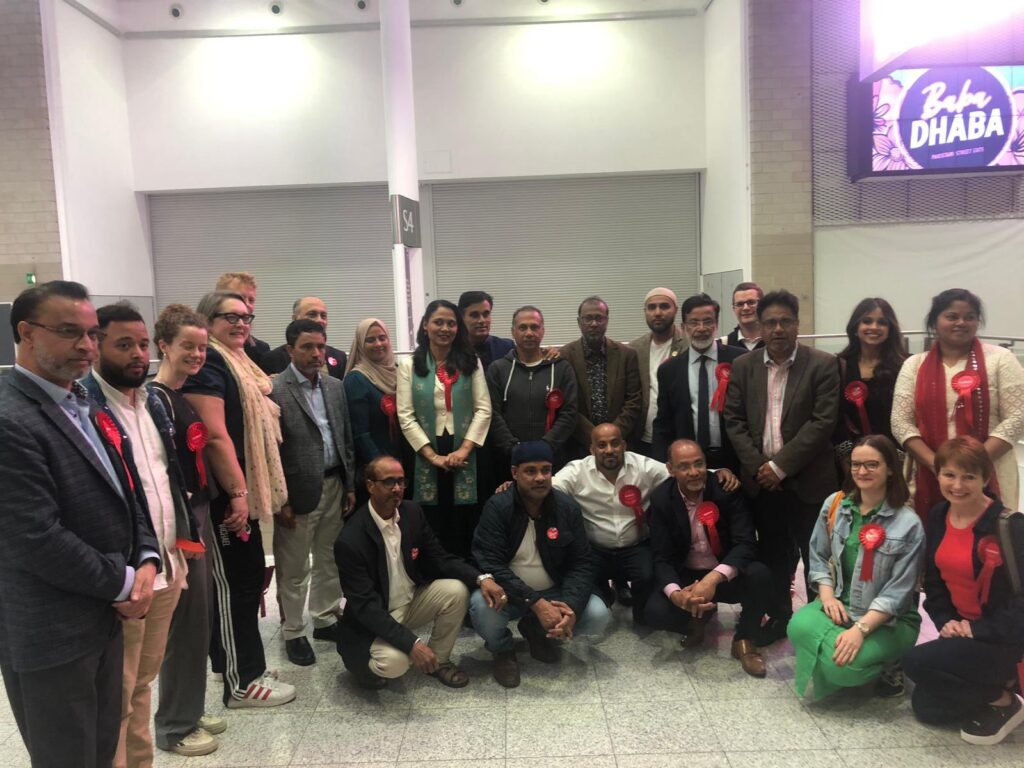
From the Battle of Bethnal Green and Stepney to the Battle for Tower Hamlets.
A few days before the election, a provocative racist letter was distributed to non-Somali and non-Bangladeshi residents, violating the Labour Party’s Islamophobia Code of Conduct. This act appeared to be an attempt to incite racial tension in the area. Following the distribution of the letter, Stuart Fancy, a long-standing anti-racist campaigner, former participant in the 1970s Battle of Brick Lane, and former member of the Bangladesh Youth Front, released a video condemning the letter. The attempts to stir up racial tensions.
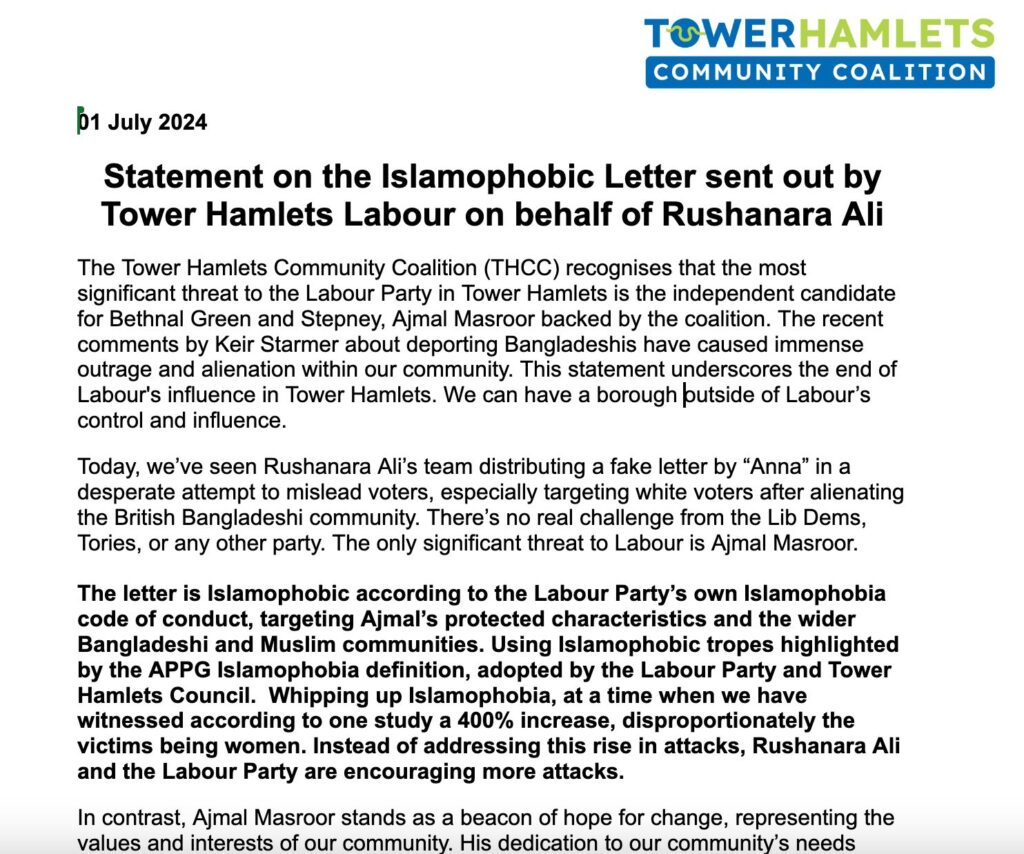
On the day of the poll, various forms of intimidation and tactics were used, with the complicity of the local police, to secure Rushanara Ali’s election. As a polling agent cycling between polling stations, I witnessed a local Labour councillor being permitted to block an entrance, forcing voters to endure his intimidatory tactics. To their credit, both Bangladeshi and non-Bangladeshi voters confronted him.
On Columbia Road, a white individual repeatedly subjected an independent canvasser to racially aggravated assaults, including a physical attack, while the police failed to intervene. In contrast, the police did take action by arresting pro-Palestinian activists in the area, only to release them from custody after a demonstration was organized outside Bethnal Green Police Station. Released as soon as the results were announced at 5am in the morning.
All throughout the day, I was informed of intimidation by Labour canvassers, some even going into people’s houses to ‘persuade’ them to vote the right way. As polling agent, I was subjected to constant abuse at the entrance of the polling stations. While walking to see someone, two Labour canvassers attempting to corner me in the streets. Fortunately, I stood my ground, and made it clear that reasonable force would be used if they came any closer.
Despite the intimidation and deliberate stoking of racial tensions, Rushanara Ali lost a supermajority of 37,500 to 1,700 votes marginal by the end of the night. This occurred amidst high voter turnout, indicating that the Tower Hamlets Labour Party is headed for a significant defeat in the 2026 local elections. In fact, when adjusting for turnout, Rushanara Ali received fewer votes than Mayor John Biggs. Illustrating that, she has now become a liability for Tower Hamlets Labour in the forthcoming local elections.
Against Genocide: From Bukhara to Bengal and then onto Brick Lane
Before I joined Ajmal Masroor’s Independent Campaign, I was on a guided tour of Uzbekistan. Throughout the journey, I witnessed the lingering effects of the 13th-century Mongol Genocide. Even after 800 years, the region and its population have not fully recovered.
The most poignant moment for me was in the city of Bukhara. Eight centuries later, the city still bears the scars of the genocide. In the courtyard of the main mosque, there stands a monument dedicated to the 15,000 children who were gathered and massacred in the mosque. Erected by the Uzbek Naqshbandi, Shaybanid Khan, who led the successful revolt against the descendants of Genghis Khan, liberating the area from their rule. A physical reminder to the population of the city of, ‘Never Again!’.
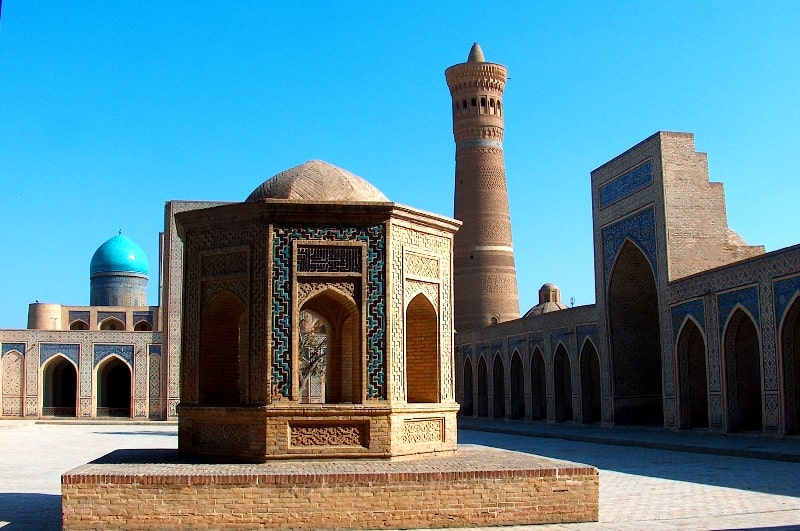
Many families in Tower Hamlets are descendents of refugees from Central Asia, who arrived in Sylhet as refugees, fleeing the Mongol Genocide. They came with Shahjalal of Konya to prevent another genocide in Sylhet in the 13th century. A migration pattern and cultural links documented by the historian Richard Eaton, in The Rise of Islam and the Bengal Frontier, 1204-1760 and India in the Persianate Age: 1000-1765.
While riding around and observing Rushanara Ali and her ‘hired goons’ in action, I couldn’t help but think about my time at the shrine of Shahjalal last winter. On Thursday nights, there’s a gathering of Naqshbandi, led by a blind Sufi. I attended one of these gatherings, and to my pleasant surprise, during his supplications, he cried out for the people of Palestine. The rest of the congregation joined in, asking for relief from the genocidal onslaught they were facing.
Rushanara Ali and her “hired goons” claim legitimacy in the eyes of the establishment, through self-identification as members of the Bangladeshi community. Yet, despite their material affluence and connections, a blind man in a village in rural Sylhet possesses more moral clarity and insight than they do. As the Sufis say, it is not the eyes in the head that go blind, but the hearts in the chest.
However, the actual community, along with others, demonstrated their stance at the ballot box, declaring “not in our name” and “never again.” On the 4th of July, the true descendants of Shahjalal, along with the people of the East End came forward and upheld his legacy of speaking truth to power and preventing genocide. Against all odds, with the entire political establishment against them both in Tower Hamlets and beyond, they brought to life the rallying cry sometimes heard in the streets of Bengal:
আমরা বীর সন্তান! আমরা বাঘের সন্তান! আমরা শাহজালালের সন্তান!
We are the Children of Shahjalal!
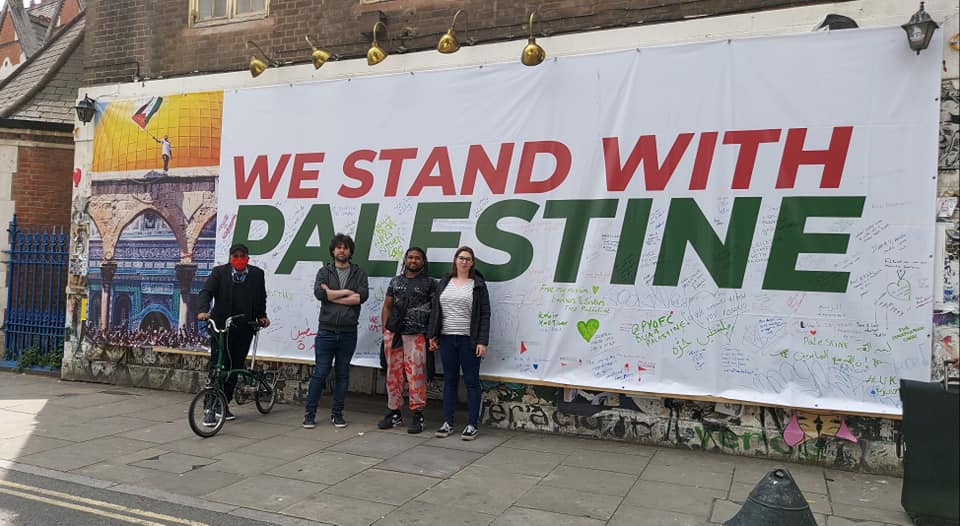

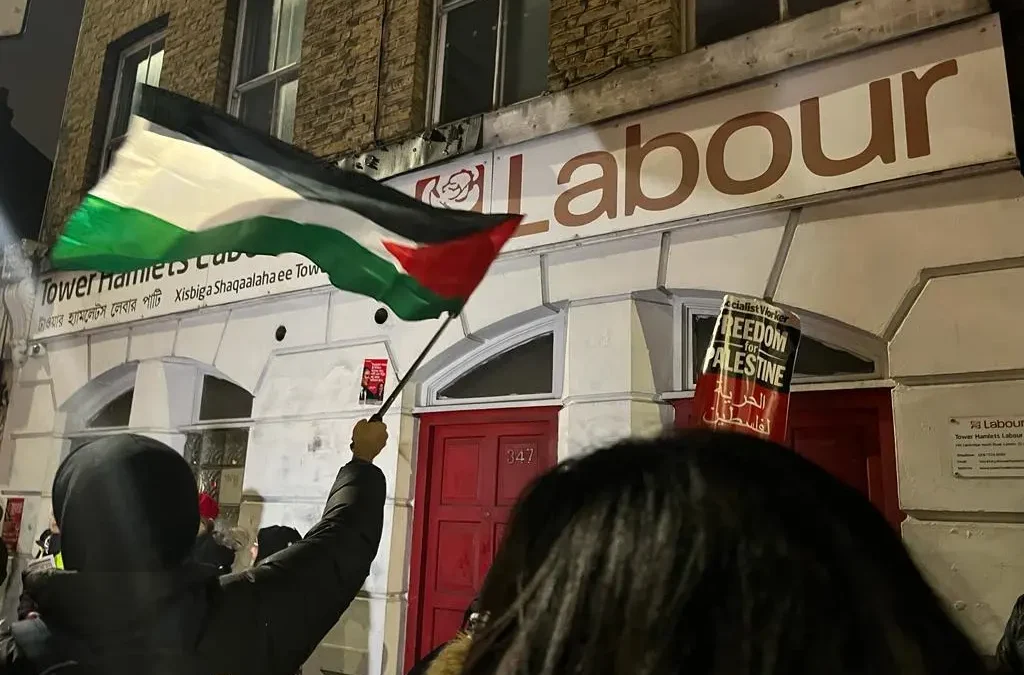
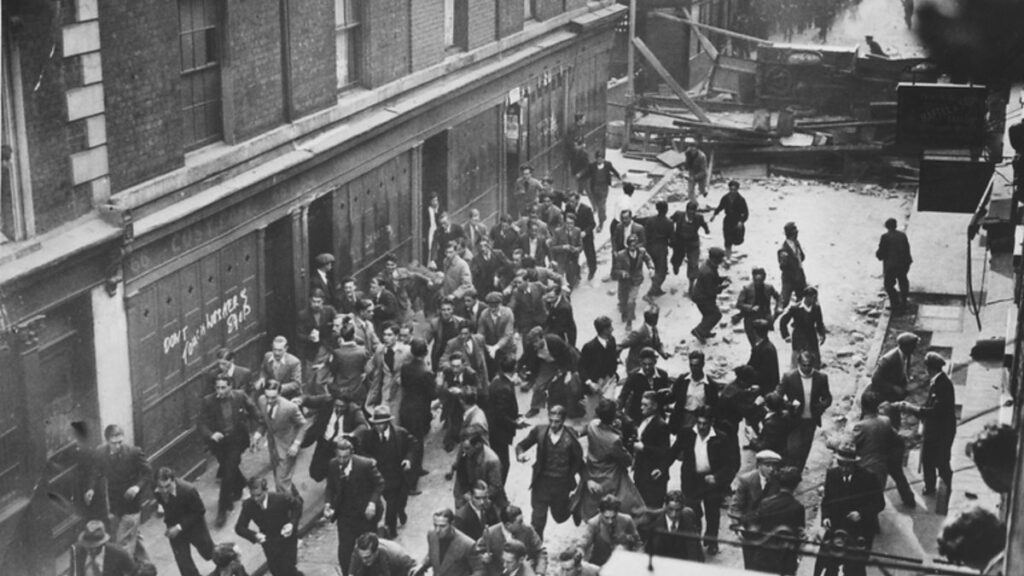
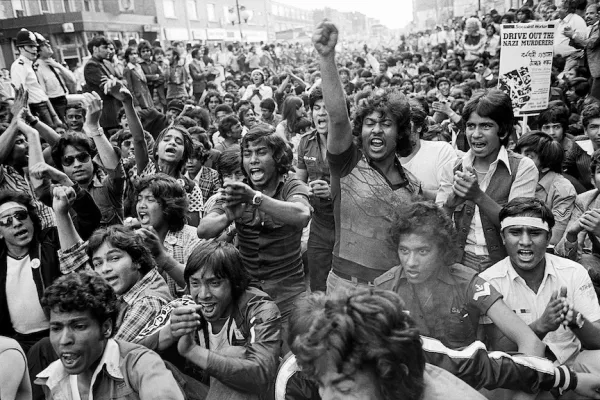
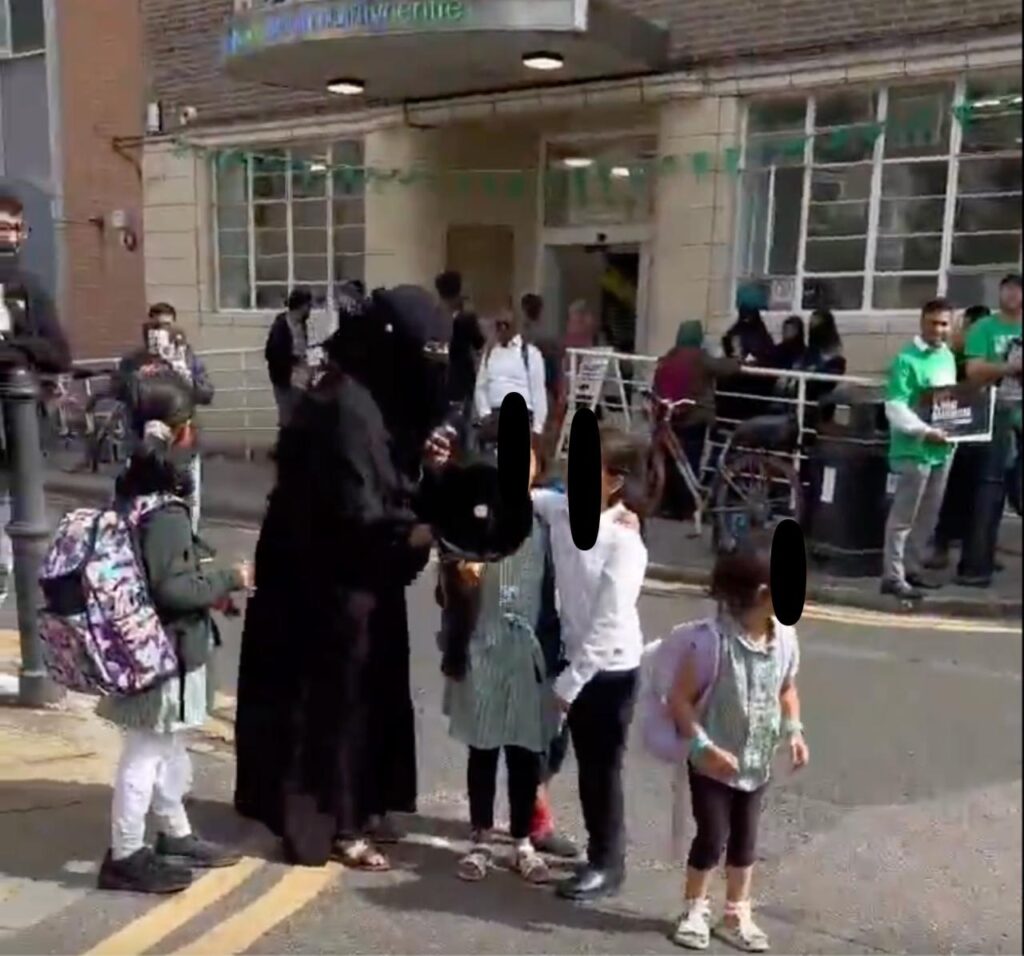
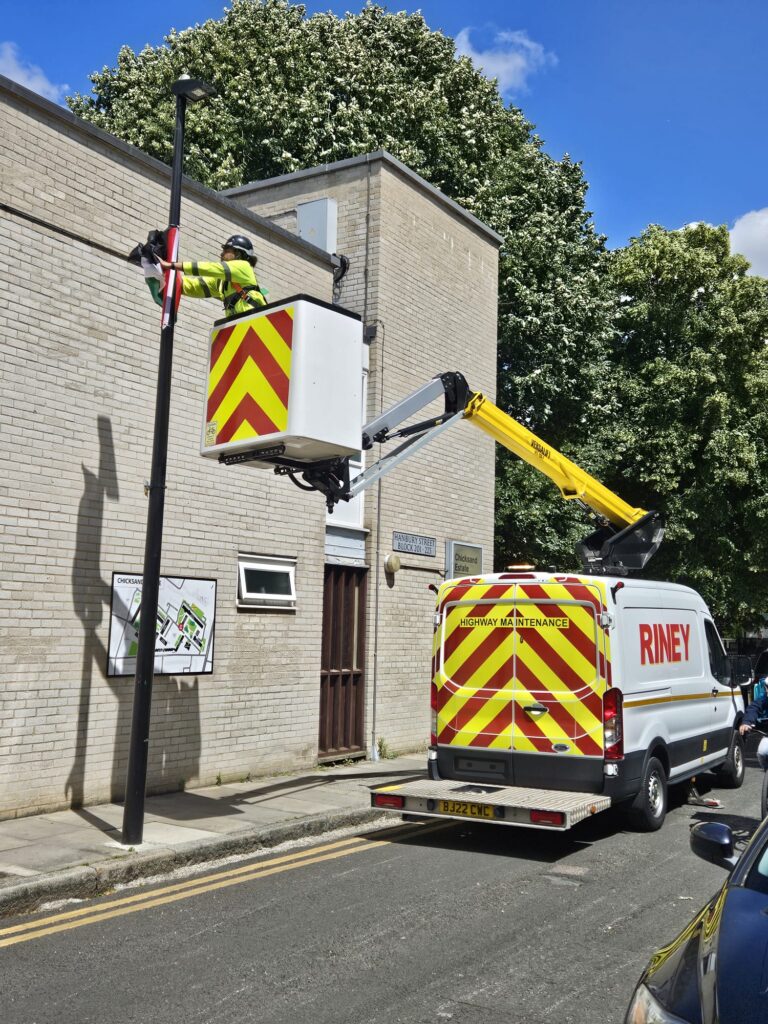
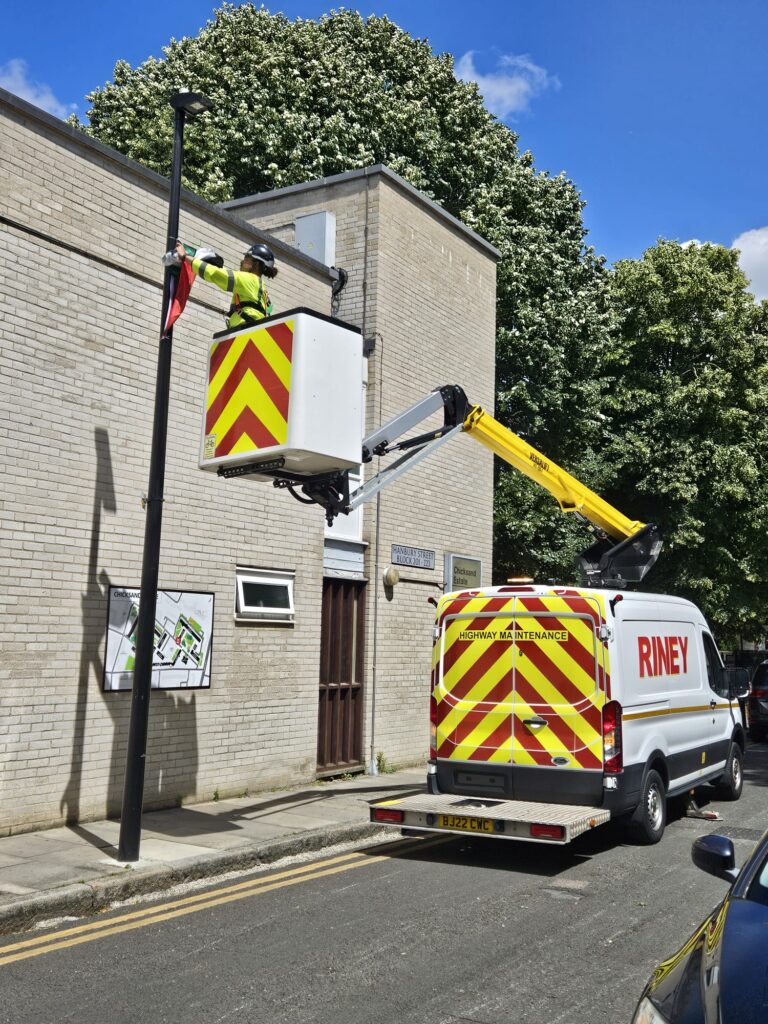
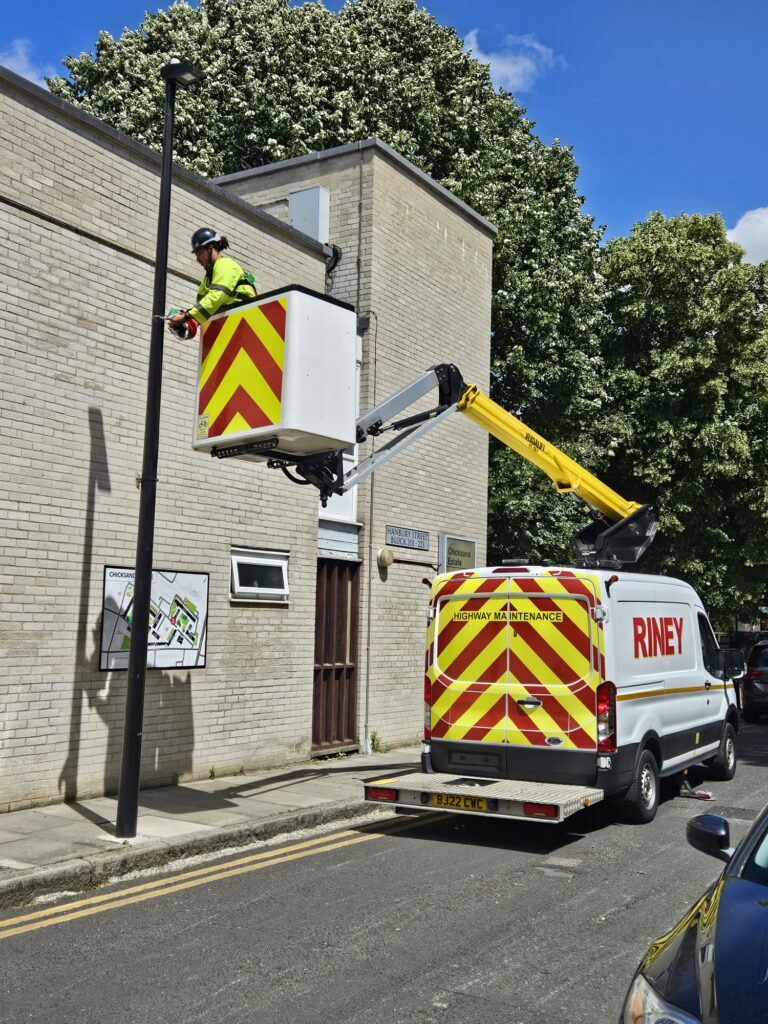
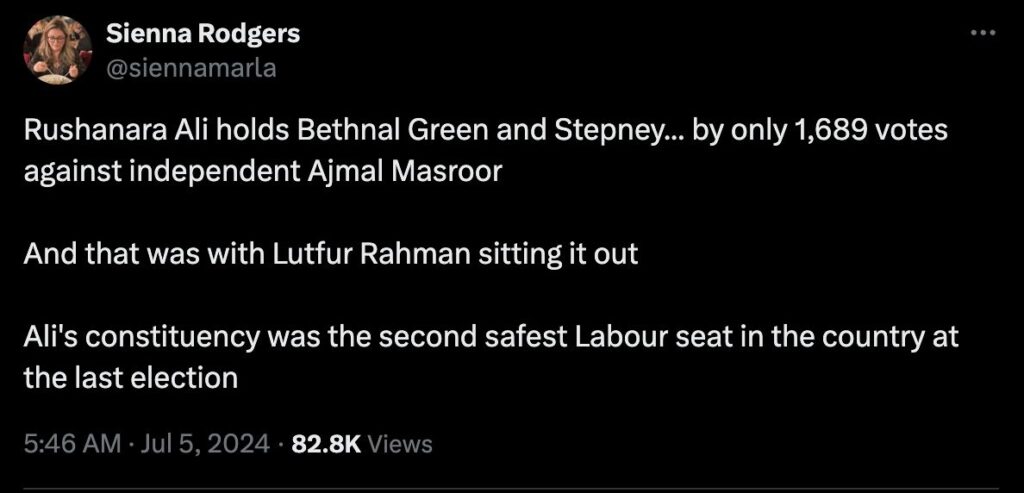

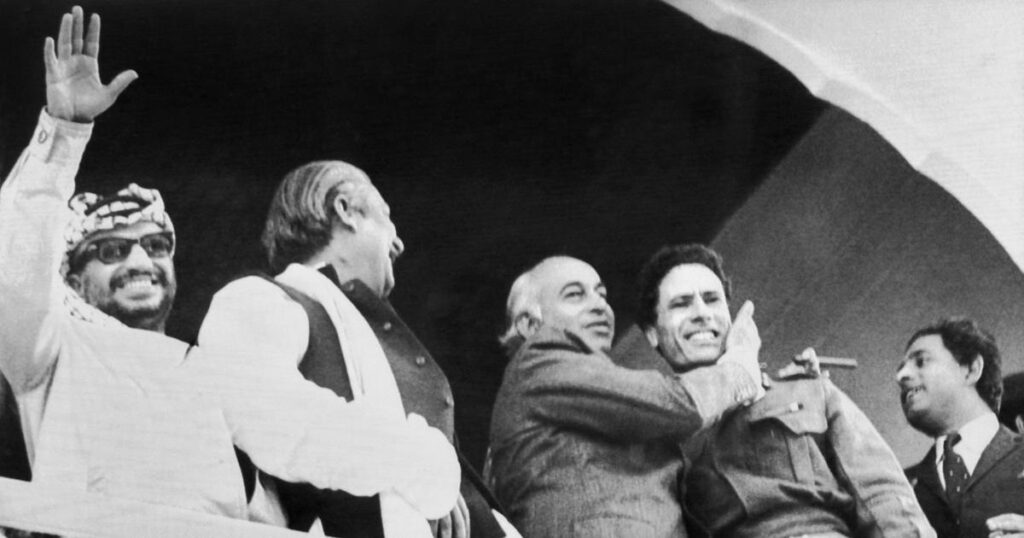
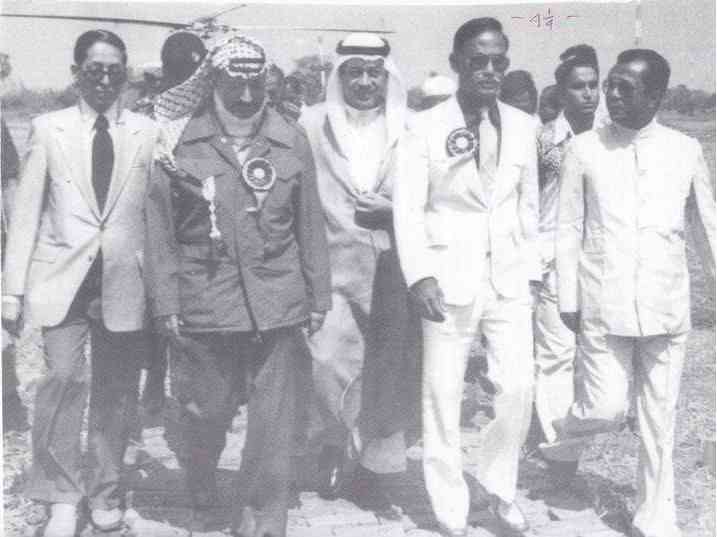
Recent Comments